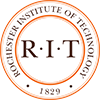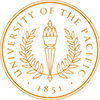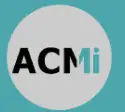Here’s a simple pre-departure guide for you to make sure you can enter Canada safe, well, and ready for your host country:
Essential Documents
Before flying to study in Canada, you need to make sure that you possess a valid passport. It must be valid for six months following the date of your return.
You must also prepare to present your letter of introduction. This is the document that the visa office sent you after they approved your study permit (take note of the reference number of your permit).
Other essential documents that you must not forget to bring when traveling to Canada are:
- Acceptance letter from your Designated Learning Institution (DLI) in Canada
- Proof of sufficient funds or financial support (A confirmation for a student loan, scholarship grant, etc.)
- A reference letter
- Either a visitor visa or Electronic Travel Authorization (eTA)
Make sure that all the documents you have are correct and complete. When packing for Canada, do not place these documents in your luggage. Instead, keep them close to you in a carry-on bag.
In your bag, ensure that the documents are safe, preferably not placed together with anything liquid or with any items that would stain the document, like makeup kits. Don’t use a carry-on bag that’s too small; otherwise, you risk crumpling your documents.
Documents must be readable upon presentation. So you really need to put extra effort to make sure they’re in excellent condition upon arriving in Canada.
Must-Bring Items
To prevent transmission of COVID-19, Canada’s safety protocols include wearing face masks for Canadian citizens, and other nationals entering the country.
Depending on the province you’ll be staying in, other items related to COVID-19 prevention may be required. You must check with the public health authority in your locality to ensure that you’re properly advised when it comes to health and safety precautions.
Generally, you’re allowed to bring non-medical masks in Canada. Remember, though, that non-medical masks also have guidelines for fit, materials, filters, and proper use.
You can also choose to bring a face shield for extra protection, but it must be used with a face mask on. As a general guideline, you’re not allowed to use scarves or bandanas, neck warmers, and masks with exhalation valves as items of protection. You can read more on these guidelines on the official website of the government of Canada.
Aside from COVID-19 protection, you must also bring enough Canadian cash. Before onboarding, make sure that you’re able to exchange your cash for Canadian dollars. Keep enough in your pocket for hailing taxis, riding a bus, or simply for security.
Funds
Aside from checking your passport and asking you some questions, the border officer would also inquire about the amount of funds you have with you.
If you’re carrying over $10,000 CAD in cash, cheques, or securities including bonds and treasury bills, tell the border officer. Otherwise, your funds will be seized.
Restricted Items
You must also keep in mind that there are items that you may not bring into Canada because they’re prohibited. These prohibited items include alcoholic beverages, drugs, tobacco, firearms, and any products from or made from animals and plants.
On the plane, any liquid such as alcohol should be in a plastic container no bigger than 100 milliliters (ml). It should also be placed in a plastic bag.
Health and Travel Insurance
It’s important to have health and travel insurance before traveling to Canada. Health insurance for international students may depend on the province they’re staying in, or with the respective Canadian institution.
Place valuable information at the top of your pre-departure priority. Read our articles to complete your pre-departure checklist and tick off reminders once you’re ready to go!















































